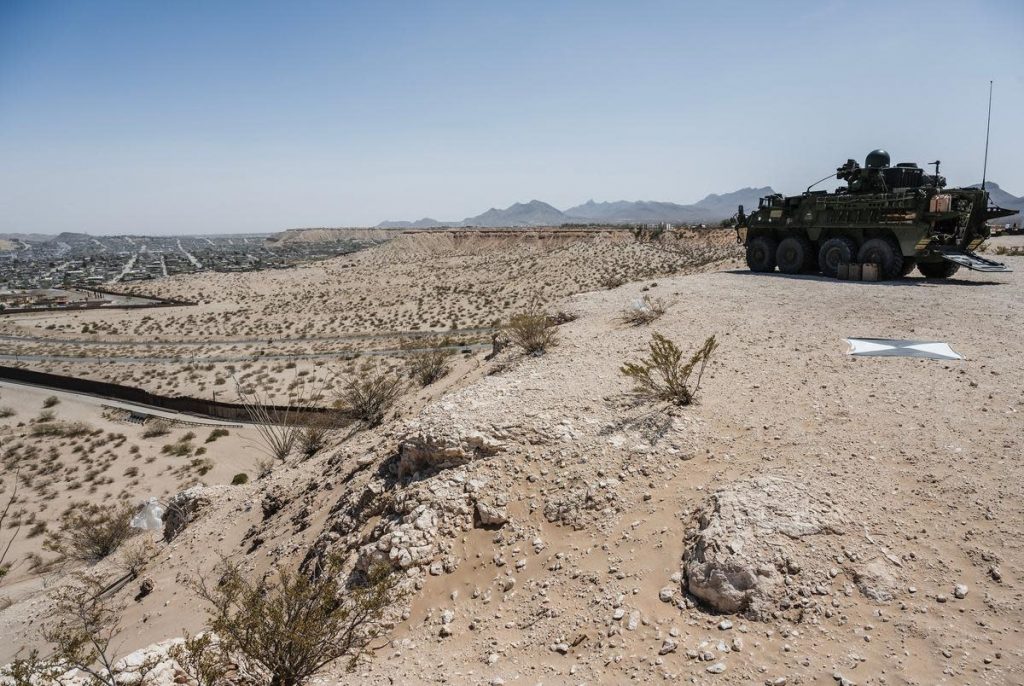An Ecuadorian migrant could spend up to a year behind bars after becoming the first person convicted of illegally crossing into a newly established U.S. military zone along the southern border in Texas.
Dario Javier Trejo-Burbano was found guilty this week on two federal charges: improper entry by an alien and entering restricted military property. Each charge carries a sentence of up to six months in prison, meaning Trejo-Burbano could face a full year behind bars, along with fines.
The case marks a significant moment in President Donald Trump’s strict immigration policy, which this year introduced National Defense Areas along the U.S.-Mexico border. In April, the Department of the Interior transferred nearly 110,000 acres of public land to the Department of Defense for three years, forming part of Trump’s renewed effort to “seal the border” during his re-election campaign.
Trejo-Burbano entered the newly designated zone on May 8. According to court documents, clear warning signs in both English and Spanish were placed every 100 feet along the boundary of the military area. Despite this, federal judges have been dismissing similar cases for lack of evidence that migrants were aware of the restrictions. Trejo-Burbano’s conviction, however, stood, making it the first successful prosecution of its kind.
Walter N. Slosar, chief of the Border Patrol’s El Paso sector, confirmed the conviction and highlighted it as a warning to others. He emphasized that military authority now extends beyond surveillance and includes the power to search and temporarily detain individuals caught inside the restricted zones.
The new military areas extend not only across Texas but also into California, Arizona, and New Mexico. Since the zones were declared, more than 400 migrants have been charged with entering military property, according to reports from local news stations. However, many of these cases have been dropped due to legal challenges.
These changes also give the U.S. Army’s Northern Command more control over immigration enforcement in these areas, with oversight from military bases like Fort Huachuca in Arizona. The 60-foot-wide strip of borderland is now patrolled more aggressively than ever before.
U.S. Attorney for the District of New Mexico, Ryan Ellison, described the National Defense Area as a much-needed security buffer between Mexico and the United States. “We believe very much that the implementation of this National Defense Area is going to serve as a buffer between what’s going on south of the border and what’s going on in the United States of America,” Ellison stated.
President Trump reinforced that message in April, stating: “Our southern border is under attack from a variety of threats. The complexity of the current situation requires that our military take a more direct role in securing our southern border than in the recent past.”
While arrests at the border have decreased under Trump’s latest crackdowns, attention is now shifting toward immigration enforcement within U.S. cities. Immigration and Customs Enforcement (ICE) has recently conducted major raids in Los Angeles and other urban centers, detaining many undocumented individuals.
As more of the southern border is converted into restricted military zones, advocates warn that criminalizing migrants for unknowingly entering these areas could result in unjust outcomes. Civil rights groups are already calling for the policy to be reviewed, arguing that migrants fleeing hardship should not be treated as criminals for seeking safety.
The conviction of Trejo-Burbano could set a new legal precedent, as the U.S. moves to enforce military-level restrictions on immigration in ways not seen in previous administrations.

